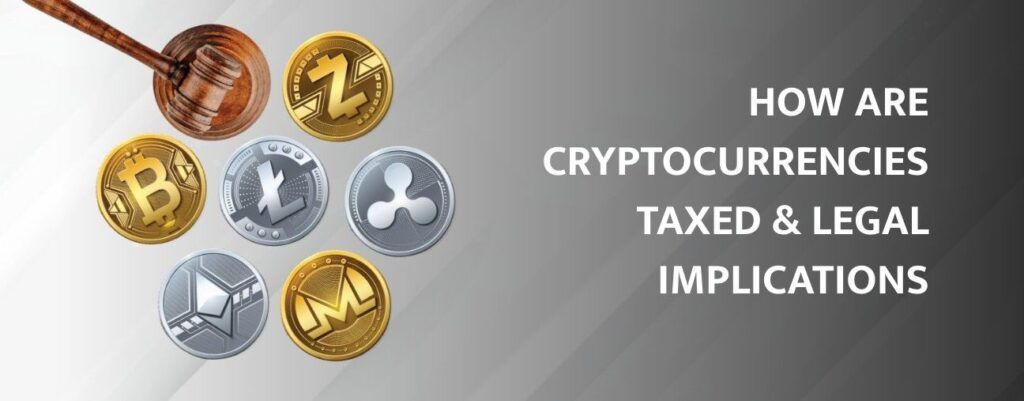Summary: If you’re an active cryptocurrency user or an enthusiast, you may just be aware of ICO (Initial Coin Offering) or have invested in it. To give some context to those who are infrequent travelers in the crypto realm, Crypto ICOs are known to give high rewards but with steep losses as well. Learn all that you need to know about ICOs, what they are, how they work, how to steer clear from ICO scams and how they are taxed in this blog guide.
Introduction
In recent years, start-ups have been trying out new ways to raise money, with the most prominent one in 2017 being Initial Coin Offerings (ICOs).
The tried-and-true decades-old technique for a technology organization to raise cash is for the founders to sell some of their ownership interest in exchange for money from a venture capitalist, who thinks that the company’s new ownership will be worth more in the future than the cash spent today.
Some of the most influential companies in the tech industry have been turning to a new way of fundraising that is more democratic, transparent, and faster- digital currency.
Let’s look at what is going on as the first ICOs surpass the $1 billion threshold, which usually results in a company becoming Silicon Valley famous.
So what is a Crypto ICO exactly?
When a company has an ICO, they are essentially selling new digital currency, called a “token,” at a discount in order to raise money. If that cryptocurrency does well and becomes more valuable over time (which is often based on speculation), then the investor has made money off of their investment.
Unlike the equity market, though, a cryptocurrency does not “confer any rights in the technology firm or allow the owner to earn cash flows such as dividends. Buyers can come from diverse backgrounds, including big venture capitalists and family offices to less well-off cryptocurrency extremists.
An ICO is a cryptocurrency and blockchain funding operation type. It may be thought of as a public offering using cryptocurrencies, although this is not the most accurate comparison since there are several important distinctions between the two fundraising methods. Startups use an ICO to raise money primarily.

PS: Many businesses, especially start-ups, launch ICOs (Initial Coin Offerings) to raise money, similar to how companies go public with an IPO (Initial Public Offering).
Investors can purchase ICOs in order to receive the new coin or token that is being issued by a given company. The types of coins and tokens available are vast. Investors may receive a utility token that helps them use a specific product, a governance token that gives them a say in how the new company is run or they may simply receive a new coin and hope that it appreciates in value.

Investing in a digital currency is highly speculative, more so than traditional startup investing, but it is fueled by the spectacular rise of cryptocurrency values, which are worth about thousands of dollars each. That increase helped introduce ICOs to both professional investors and enthusiasts.
Are Crypto ICOs a Big Deal?
We’ve seen ICOs raise an amount of about USD $3.2 billion this year for the crypto industry, which silenced arguments that state ICOs are simply a fad with no longevity.
ICOs are a dime a dozen these days. But if you’re looking to get in on the action, be aware that the process can vary depending on when you buy. For example, during a presale period buyers might have to email the seller directly to make a purchase. Later on though, most people use some sort of website portal—ideally one that requires a check on its identity.
The hype and attention about ICOs are obscuring the fact that it is, in reality, a difficult way to raise cash. There has been no greater passion in Silicon Valley than seed and angel investing in a single year. ICOs are unprecedented in Silicon Valley.
The key to a successful ICO campaign lies in strong blockchain technology and effective marketing. If these two elements are missing, the chances of failure become much higher.
ICO Types
Only a few investors are allowed to join private ICOs. In general, only people who have been accredited by financial institutions or high net-worth individuals can take part in these kinds of ICOs. Also, the company organizing the event can choose to set a minimum amount to invest. They are becoming more popular owing to regulatory concerns.
Public ICOs are a type of crowdfunding that involves the general public. Because almost anybody can become an investor, public offerings are a democratized form of investing.

Types of ICOs
Private
Only a limited number of investors can participate in the process.
Public
This is a form of crowdfunding that targets the general public.
How Do Crypto ICOs Work?
Any crypto ICO’s goal is to raise funds and encourage investment, though they commonly differ in how they are structured. This matters for your investment because it means different ICOs operate differently.
ICO: Static Price and Static Supply
A specific funding goal is set by the company, and each coin or token sold during the ICO has a set price. The number of tokens available is fixed. So, if a company wants to raise USD 1 million, they would sell 1 million tokens at 1 USD each.
ICO: Dynamic Price and Static Supply
A dynamic funding objective is set by a firm. There is a fixed amount of tokens available. The total token price is determined by how much money was collected in the ICO. For example, suppose that a firm conducts an ICO and raises USD 3 million. There are 1 million static tokens in existence, so each one costs USD 3.
ICO: Static Price and Dynamic Supply
A company set a USD 1 million fundraising goal, but there was no limit to the amount of tokens. The supply of tokens is determined when they reach their fundraising goal. So for example, 500,000 tokens are in circulation meaning each one costs USD 2.

- Static Price & Static Supply
- Dynamic Price & Static Supply
- Static Price & Dynamic Supply
A whitepaper that explains the technical structure of a crypto ICO and is made available to potential investors through a specific site and via marketing is essential. This white paper doesn’t just describe the ICO’s structure; it should also contain information about the project, including:
- The Project’s purpose.
- How long will the ICO run?
- Future goals that will emerge from the project.
- Funds’ breakdown required to finish the project.
- Percentage of tokens and coins that will be kept by the company or other investors
- The currency that is accepted by the company as investment – whether it would be crypto or fiat currency.
- The Ts & Cs for returning the funds in case the ICO is not successful.
Launching A Crypto ICO: Who Can?
Anyone can.
Although it varies from country to country, there is very little regulation surrounding crypto ICOs. While this can be seen as an opportunity for greater rewards, it’s also a risk because many of these ICOs are scams.
Crypto ICO Scams
Many people have lost large sums of money to crypto ICO scams, with some becoming quite infamous.
PlexCoin, a crypto ICO scam, managed to raise $20 million from investors by promising returns of 1,354%. Unsurprisingly, the company wasn’t able to deliver on this and was quickly shut down by the SEC. Fortunately, due to the SEC’s involvement, PlexCoin was compelled to repay the majority of the $20 million they stole from investors. However, many individuals who get deceived by cryptocurrency ICO scams are not so fortunate.
The most notorious crypto ICO scams are Bitconnect and Tezos. The Bitconnect ICO raised $3.45 billion, which is the biggest amount of money ever collected for an initial coin offering (ICO). According to the project’s founders, Bitconnect would be a free and open-source currency with returns of 40% per year. They failed to disclose that Bitconnect was linked to a high-yield investment scheme, otherwise known as a Ponzi scheme.
Soon after the ICO began, allegations of unlawful activities flooded in from both investors and financial authorities. The currency subsequently vanished, leaving many investors with a complete loss of money.
Although it might appear to be simple to prevent a crypto ICO scam by avoiding suspect websites that guarantee substantial returns, unfortunately, it’s not always that easy. For example, even celebrities like Khaled have been paid to endorse crypto ICOs that turned out to be scams later on. They’ve both subsequently been taken to court over this- which demonstrates how tricky it can be to identify a crypto ICO scam.
In general, the best thing you can do is your homework on any crypto ICO. Learn about the business, look for objective opinions in the crypto community, ask more experienced investors for advice, learn about the developers behind the project and product and so on. Remember – if it sounds too good to be true, it probably is.

Crypto ICO Scam Types
- Rug Pulls.
- Ponzi Schemes.
- Phishing Scams.
Crypto ICO Examples
It may seem like all cryptocurrency ICOs are fraudulent, but that isn’t the case. In fact, some crypto ICOs have performed admirably. Few crypto ICOs that were successful are:
Ethereum ICO: Before ETH became one of the most well-known cryptocurrencies, Ethereum launched an ICO to raise money to develop their smart contract features. During the ICO, ETH tokens sold for $0.31 each. Just one ETH is worth roughly $3,812 today, according to historical data
Cardano ICO: This ICO was very promising in January 2017, as they said they would use the funds to develop Dapps capabilities and smart contracts. It raised an impressive $62 million, with a $0.02 cost for each token. As present, ADA is already up to $1.33 per token – and many people are predicting that it will go even higher in price in the future.
Ark ICO: Ark is a digital currency platform that seeks to connect other cryptocurrencies to its blockchain. When ARK coins were first introduced, they cost $0.04 each. The price reached $11 at its peak, giving early investors who sold them a return on investment of over 35,000%.
How Are Tax Levied on Crypto ICOs in the US?
If you’re reading this, it’s highly likely that you’re either preparing to launch an ICO or have already reaped the benefits of a successful investment. Unfortunately, in many countries around the world, these transactions are taxable. The amount taxed depends on your role in said ICO – whether you’re organizing it or simply participating as an investor. Let us explain further.
Even if you’re using fiat currencies or cryptocurrencies, most tax offices will still classify an ICO as income and charge Income Tax on all proceeds.
If you’re an investor, the process is a little more direct. The large majority of tax agencies globally have not released any information concerning ICOs – however we can observe the taxes collected from IPOs for similar guidance. In most countries, this means that there are no taxes paid when investing in an ICO. It’s only after selling, spending, exchanging, or giving your coins or tokens as gifts from an ICO that you would pay Capital Gains Tax on any profits made.
The amount of tax you owe from your ICO tokens/coins depends on your country’s taxation laws and how large your profit is. You can quickly calculate your gain or loss by subtracting the cost of acquisition from the sales price. If you traded for another cryptocurrency, use that coin’s fair market value instead in order to get an accurate calculation.
How are Crypto ICOs Taxed in India?
There is a flat 30% standard tax levied on cryptos and NFTs in India. SInce ICOs are treated as income, tax on them will be levied as per the standard income tax slab.
Is the government okay with taxing Crypto ICOs?
That’s yet to be decided.
The SEC (Securities & Exchange Commission) in the United States requires businesses that obtain private funding to publish a disclosure. The SEC recently warned firms that they might be violating securities rules with token sales, which has left the market largely unregulated.
Among the most intriguing issues in this new area is how governments will regulate these novel transactions. The IRS has claimed that virtual currency, in general, is taxable, as long as it can be converted to dollars.
Some believe that the SEC will launch a full-scale investigation of ICOs soon. This has already occurred in other countries, with China being one of the most notable after completely outlawing the practice this month. Even though ICOs are hosted in one country, they can be traded globally as long as there is an internet connection available.
The majority of ICOs are scams, so China’s pause on ICOs is needed to weed out the bad apples. The next phase of ICOs will be the real deal.
Calculate Crypto Taxes with CRPTM
CRPTM helps crypto investors around the world get their taxes done quickly and painlessly. Simply connect your wallets, exchanges, or blockchains to CRPTM via API integration and have it compute your crypto income, capital gains, losses, and expenses. After you’ve completed this step,CRPTM will calculate your crypto capital gains, losses, revenue, and expenditures while also generating a tax summary for you. You may then download a comprehensive tax report that’s ready to submit to your local tax authority.
When it comes to crypto ICOs, all you have to do is find the correct ICO transaction and plug in your cost basis (how much you paid for the tokens and coins). CRPTM can then compute any future capital gains or losses from trading, selling, spending, or giving your coins or tokens as gifts.
If you have any suggestions or want to contribute to more information on Crypto ICOs, please do not hesitate to leave a comment below. We’d be happy to hear from you.
CRPTM Disclaimer: Please note that the following information is solely for educational purposes and should not be taken as tax, legal, or investment advice. The cryptocurrency taxation landscape is always changing and there’s no easy answer. Be sure to speak with your own tax specialists to learn how digital currencies should be taxed in your situation.
Endnote
That concludes our take on cryptocurrency.
And don’t forget to share this blog with your friends and followers – knowledge is power.
Disclaimer: The information presented on this website is intended for general informational purposes only and should not be interpreted as professional advice from CRPTM. CRPTM does not offer financial advice. We strongly recommend seeking independent legal, financial, tax, or other professional advice to determine how the information provided on this website applies to your specific circumstances. CRPTM assumes no liability for any loss incurred, whether due to negligence or otherwise, resulting from the use of or reliance on the information contained herein.





